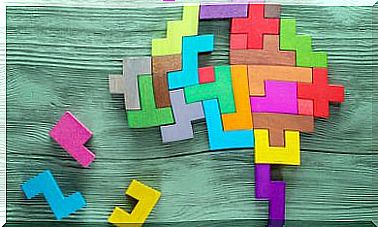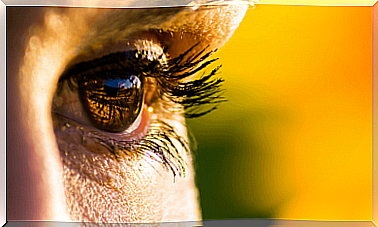The 11 Types Of Thoughts And Their Characteristics

In our day to day the mind produces different types of thoughts. Some are more valid, others are not very useful and a good part of them allow us to make decisions in the face of the small and great challenges of life. Also, there is something remarkable that we do not lose sight of and that is that, at present, neuroscience still does not really know what human thought is and how it occurs.
We know that they respond to the fascinating result of our neuronal activity and that they require the activation of different areas of the brain. The German physician and physicist, Hermann von Helmholtz, pointed out in his day that this cognitive magic was the result of unconscious inferences. Later, Roger Shepard defined them as mental representations.
Nowadays, we constantly influence that thought and emotion have a direct relationship, to the point that our way of thinking can impact the way we feel. Thus, despite the complexity in the definition of these psychological processes, there is something undeniable. Thinking well, as Nobel laureate Daniel Kahneman would say, would allow us to live better.
Therefore, one way to achieve a better mastery of these dimensions is by knowing them, distinguishing each mode of thought that the brain produces. We analyze it.

Types of thoughts
Reflect, imagine, daydream, worry about things that have not happened yet, judge, think of a solution to that problem that causes us insomnia … Throughout the day we can have different types of thoughts and all of them modulate the way we process and we react to what surrounds us and what happens.
Being aware of the thought pattern that dominates us the most throughout the day can be very useful. Although it is true that many of them appear in our mind involuntarily, becoming aware of them can allow us to strive to have greater control over them.
1. Reflective thinking
Thinking in a reflective way allows us to analyze the different realities that surround us in a deep, thoughtful and serene way. This mental process favors making better decisions without leading to impulsivity.
Thus, studies such as those carried out at the Tunku Abdul Rahman University in Malaysia emphasize the need to develop this competence in children in order to enable them to think critically afterwards.
2. Critical thinking
Few competencies are as necessary as reasoning and deciding critically. Critical thinking goes beyond the apparent, the normative or the established to capture nuances, question the obvious, and find contradictions and loose ends. It is in those small edges of everyday life where, sometimes, the great revelations are found.
3. Deductive thinking
The person who thinks deductively infers information from the analysis of specific variables. It does so by starting from general premises, to later reach a particular conclusion. In a way, this is one of the types of thoughts that we use the most on a day-to-day basis.
If I go into a store, for example, and see that many of the pieces of clothing I look at have very high prices, I deduce that this store is too expensive for my economy.
4. Induction
In 1938, Leon Thurstone, pioneer of psychometry, defined induction as a way of reasoning that starts from a series of particular observations. These allow the production of general laws and conclusions (the opposite of deductive thinking).
5. Logical thinking
Logical thinkers are great observers. They meticulously analyze each fact, compare, deduce and infer, and later draw conclusions based on all that information available. This allows them to always justify each step thanks to each data they collect.
6. Creative thinking
This way of reasoning can change our lives. People who think creatively explore multiple perspectives and possibilities. Having groundbreaking and genuine ideas allows us to take cognitive paths different from the ordinary ones.
Thus, studies such as those published at the Radboud University of Nijmegen (Netherlands) also highlight that creating training programs in creative thinking improves academic results in students.
7. Reasoning systematically
One of the most interesting types of thinking is systematic. In this case, what we do is make contact with what surrounds us to understand each component without transforming it. It is putting the magnifying glass on things and trying to understand what they are made of.
8. Deliberative thinking
The person who thinks deliberatively acts, decides and thinks based on his values and emotions. In this case, reflection is put aside to behave and respond in an authentic, human, emotional way.
9. Divergent thinking
Spontaneity, creativity, challenge, originality … Divergent or lateral thinking is capable of generating multiple and ingenious solutions to a specific problem. This cognitive flexibility allows you to deactivate the dogmatism of the day to day.

10. Convergent thinking
Logic, reason, induction, deduction… This is one of the most interesting types of thinking too. It uses that logical, experience-based approach that we routinely use to solve problems.
11. Magical thinking
Magical thinking is typical of children, superstitious people, or even certain religions. We also find it in certain literary genres. It consists of reaching conclusions based on unsound, unjustified, fanciful or supernatural variables.
However, on certain occasions many of us can also derive this magical reasoning. An example of this is to take as valid the classic idea that “it is enough to want something a lot for it to happen”.
To conclude, all these types of thoughts make up the way we process our everyday reality. Those abstract entities that neuroscience cannot yet clearly define make up everything we are, what we feel, and the way we make our decisions.








